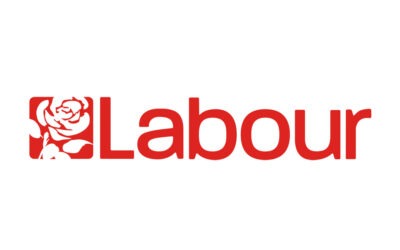
Since its launch some 28 years ago, in 1994, the Enterprise Investment Scheme (EIS) has become a well-established, tried and tested UK investor staple. Designed to encourage investments in small unquoted, government-qualified companies within the United Kingdom, the scheme provides a series of UK tax reliefs to those investing in an EIS fund.
As a part of the government’s venture capital schemes, EIS qualifying companies in a wide range of sectors and industries can raise money to help grow their early-stage and emerging businesses. The scheme’s remit supports this by offering numerous tax reliefs to individual investors who buy new shares. Usually, these are small, privately owned companies, although they may also be listed on the Alternative Investment Market (AIM).
A Firm Favourite
Typically, these companies have gross assets of less than £15 million and fewer than 250 employees. However, there are different rules for knowledge-intensive companies, backed by a significant amount of research, development or innovation.
Remaining a firm favourite among seasoned investors, let’s take a look at the reasoning behind its popularity. Discover the secrets behind the longevity of the Enterprise Investment Scheme and why it’s become such a successful, established and dynamic market.
Supporting the UK Economy
Since its launch in 1994 and replacing the government’s Business Expansion Scheme (BES), according to the National Statistics, the publication produced by HM Revenue and Customs (HMRC), the Enterprise Investment Scheme has:
- Provided investment for over 32,965 new and emerging companies.
- Raised approximately £24 billion in investment.
- Seen a steady increase in EIS use since 2010.
- Accounted for £630 million of investment (33% of all EIS investment) in 2019 to 2020.
- Raised £1,267 million (66% of all EIS investment) for companies registered in London and the South East (the largest proportion of investment) in 2019 to 2020.
Long Term Growth and Development
Limits on eligible companies were introduced in November 2015, including age limits and funding limits, along with new growth and development requirements. A risk-to-capital condition was introduced in 2018, focussing on investment in early-stage companies that have the intention to grow and develop in the longer term. The combination of these increased limits and the focus on growth of the risk-to-capital measure is expected to result in more funds being raised through the EIS in future years in these innovative companies.
The popularity of the EIS is also due to increased promotion and the involvement of fund managers. Innovative and emerging companies are vital to generating jobs and supporting the UK economy and as such offer the potential for attractive returns. Moreover, as more and more investors are looking to back early-stage businesses and rapidly growing market opportunities, investor demand is also increasing.
Highly Attractive and Generous Tax Reliefs
Available to both direct investors and investors through a managed EIS fund or portfolio service, there are some seriously significant tax benefits and advantages associated with EIS investments:
- Upfront 30% income tax relief (on shares held for more than three years).
- Offsetting tax relief against your previous year’s tax bill.
- No Capital Gains Tax (CGT) on any gains when the investment is realised after three years.
- CGT deferral: you can defer capital gains realised on a different asset.
- Loss relief (if your investment value decreases).
- Free from Inheritance Tax (IHT): EIS shares do not form part of the estate for IHT purposes.
The EIS allowance is £1 million, which equates to £300,000 income tax relief. The EIS allowance increases to £2 million if you’re investing in knowledge-intensive companies, meaning you could claim up to £600,000 in income tax relief.
Tax reliefs are only available to UK taxpayers.
EIS: The Investor’s Best Kept Secret
Once the privilege of the well-connected investor, nowadays, EIS forms part of a well-balanced investment portfolio.
According to the Siding with the Angels report by NESTA.
- Business angel investing is risky, but overall appears to generate attractive outcomes.
- Eighty per cent of investors surveyed have made use of the Enterprise Investment
- Scheme, at least once.
- Forty-four per cent of investments that generate positive exits win at a larger multiple than the costs of the negative exits.
- The overall return to business angel investing in the UK is 2.2 times the invested capital.
- Nine per cent of large investment exits produced nearly eighty per cent of all the positive cash flows.
- This is approximately a 22 per cent gross Internal Rate of Return (IRR).
Westbrooke Associates identify a wide range of investment opportunities, backing the businesses you believe in, including Enterprise Investment Scheme opportunities. Register your interest today and explore how we can help you target and capture attractive returns.



